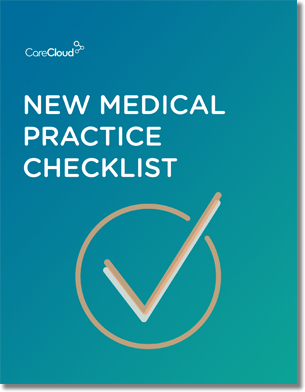It only takes a bad batch of apples to ruin the reputation of salespersons across the healthcare technology board. In reality, not all salespersons are shifty, but a bad experience can make a physician or practice manager skeptical.
Can you blame them? No one likes being deceived, especially when you’re at a disadvantage in terms of healthcare IT knowledge. Francis Bacon’s age-old ‘knowledge is power’ adage holds particularly true in the seller-client relationship.
Choosing an EHR for your practice is stressful enough, so we’ve put together a list of sales tricks to avoid while demoing different EHR options for your practice.
The company uses a smaller database to make the system seem faster.
Ask the salesperson conducting the demo about the size of the database. A number of EHR vendors create a much smaller patient database than what you would have at your practice, resulting in much faster speeds and less run time errors.
In other words, ensure the vendor isn’t demoing an EHR that is only housing information for three or so patients.
The vendor’s system runs obscene numbers for patients that wouldn’t make sense.
When demoing an EHR for your practice, you’re looking for efficiency. You want a system that will work under real world conditions and reduces the margin of error.
So, if you spot absurd patient data during an EHR demo, say a 10-year-old girl weighing nearly 1000 pounds or a 9 ft. tall man, you’ve spotted major inefficiencies in the system and are right to worry.
Not only is it pointless to adopt a system equipped with the capacity to handle these figures, but imagine what an accidental keystroke can do when inputting patient information. Consider the difference one number makes for GPS coordinates and apply that to concerns over the margin of error of your potential EHR.
Look for misspellings.
While it seems trivial, misspellings can point to a number of discrepancies in the EHR you’re viewing. Check out every visual aspect of the demo. Are there any misspellings on your screen?
While most EHR companies have spellchecked their software, misspellings are sometimes overlooked and are a clear sign of inefficiency.
If you can’t find any glaring misspellings or grammatical errors, ask the salesperson administering the demo to purposely misspell words in the patient notes section. If the system doesn’t recognize the misspellings, there is reason to wonder whether there are similar inefficiencies laden throughout the EHR.
The vendor uses workarounds to make system faster.
In the event where your demo is administered via applications like GoToMeeting.com, it’s possible for salespersons to pause the demo while it loads another function and speaks with you, perhaps asking you a number of questions that are already on your mind regarding the product.
The problem? While the demo is paused, the salesperson could be loading a function with an extraordinarily long wait time, which is obviously a cause for concern. If it seems like your salesperson is doing something similar to this, ask him or her to show you how long it takes to load the function in question.
Explanations, please?
Beware of salespersons not accurately defining terms like ASP, or carelessly equating EMR to EHR. If your salesperson isn’t clearly defining terms that are essential to the EHR in question, why should you trust the product?
Furthermore, company salespersons may talk their way through a feature without demonstrating its functionality. If this occurs, don’t hesitate to ask them to talk through the feature, explaining how it works in a step-by-step fashion.
Also, feel free to ask specific questions about functions the salesperson hasn’t reviewed. If he refuses to explain them, he may fear deviating from their routine and hope you’ll forget about these questions later. Sound fishy?
Not all salesmen are slimy – some aren’t even particularly slick – but please beware. Selecting the right EHR is among the most important decisions you’ll make for your practice this decade.
What ‘demo tricks’ have you come across while shopping for an EHR?

Do you know what you need when setting up a new medical practice?



